Economic Crisis
The Chinese character for “crisis” combines the ideas of danger and opportunity. In the span of about one year, a regional economic “miracle,” with its promise of continued high economic growth and opportunity for all, was transformed into a severe regional, and potentially global, economic collapse. It has seriously endangered the livelihood of millions of people, causing untold misery and suffering | more…
Back in 1972, when one of us was living in Toronto, the Canadian national hockey team played a series of much publicized games against the Soviet Union. Horror of horrors, the Soviet team started winning. The defeat of Canada’s favorites at its own national sport, and, worst of all, at the hands of Communists, was an occasion for some deep national soul-searching in the mainstream press. There were some astonishing editorials, which came very close to questioning the fundamental values of capitalism if it could so weaken the moral fiber of Canadians as to lead them to defeat by the Communist adversary at their very own game. | more…
What’s the matter with Japan? According to today’s conventional wisdom—i.e., what we are told by the media and the syndicated pundits—almost everything. Its economy, the second largest in the world, is in a long-term crisis that affects on everyone else, most severely the United States, and it stubbornly refuses to do anything about it despite the friendly advice and frustrated pleas of its partners in the developed capitalist world. | more…
A striking feature of the mountain of talk about the Asian crisis is that its root cause is all too often ignored The focus of the media and the pundits is on weak banks, bad management, corrupt officials, heavy indebtedness, excess speculation, and the fragility of the financial markets. Typically, the disaster is viewed as a regional affair. A rare exception is the statement of Eisuke Sakakibara, Japan’s vice-minister for international finance: “This isn’t an Asian crisis. It is a crisis of global capitalism.” (Business Week, January 26, 1998) But he too was apparently thinking of financial markets, concerned with effects, not causes. | more…
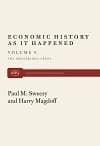
The economies of the capitalist world-individually and as part of a closely knit global system-have been in an ongoing state of crisis since the early 1970s when the long post World War II boom finally came to an end. This crisis has gone through several phases but has not at any time shown signs of giving way to a renewed long wave of prosperity. | more…
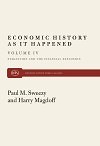
This is the fourth in the magisterial series of essays by the former editors of Monthly Review on the state of the U.S. economy and its relation to the global system. Like its predecessors, this volume focuses on the development of U.S. capitalism as it takes place, and covers the 1980s. The authors stress the profound contradictions of the underlying processes of capital accumulation and identify, before any other economic commentators, the immense implications of the use of the explosion of debt to attempt to solve the problems presented by the underlying stagnation in the real economy. | more…
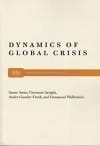
Preeminent theoreticians of the world economy set out their understanding of the long-term dynamics of global capitalism. | more…
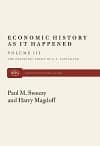
This is the third book of essays on the United States and the world economy produced by the fruitful collaboration of Monthly Review editors Paul M. Sweezy and Harry Magdoff. In these essays, written between 1977 and 1981, the authors assess the results of efforts taken to stabilize the economy after the epochal changes of the early 1970s, the end of capitalism’s “golden age,” by attempts to counteract the effects of inflation, debt dependence, speculation, and financial instability. | more…
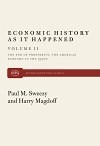
This is the second in the series of four collections of essays in which Paul M. Sweezy and Harry Magdoff, the editors of Monthly Review, set out as it took place the development of U.S. and global capitalism from the late 1960s to the “financial explosion” age of the early 1990s and after. | more…
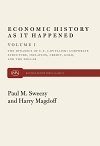
This is the first of the series of four collections of essays in which Paul M. Sweezy and Harry Magdoff, the editors of Monthly Review, chronicled, as it was taking place, the development of U.S. and global capitalism from the end of its “golden age” in the late 1960s to the full onset of the financial explosion of the early 1990s and after. | more…





